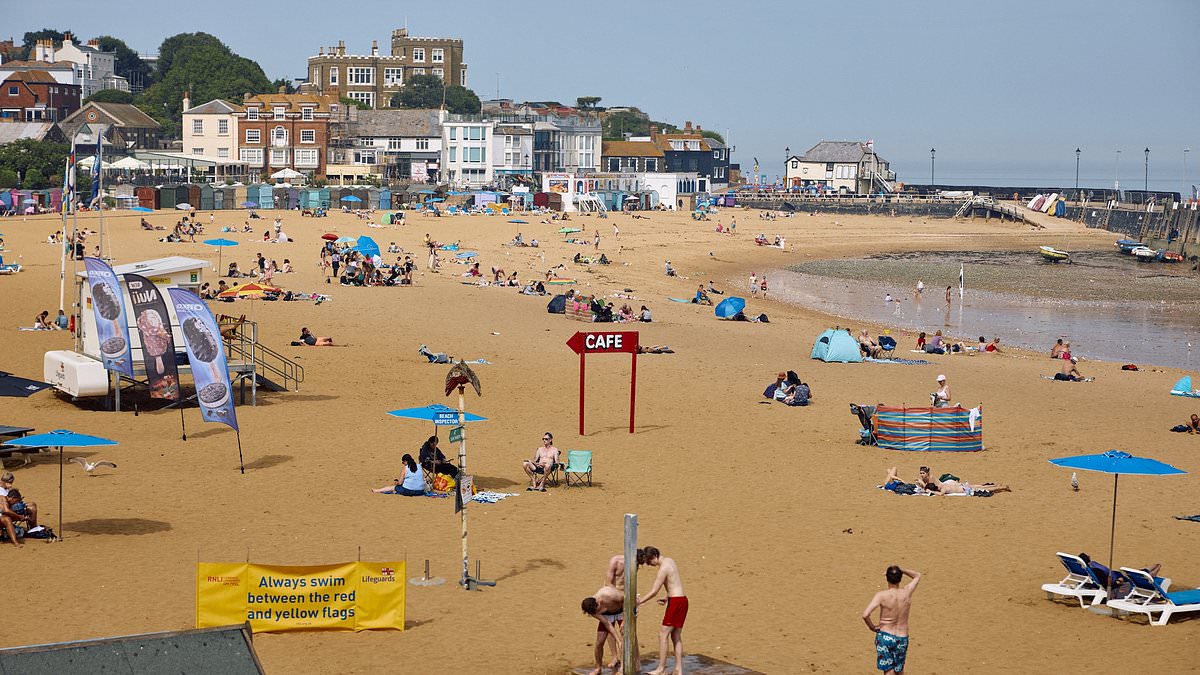Sizzling conditions sent temperatures up into the 30s in some parts of the country today on what is now the hottest day of the year so far.
The scorching temperatures mean parts of Britain are experiencing hotter weather than Ibiza, with highs of 28C (82F) expected on the Spanish island.
A yellow weather warning remains in place until tomorrow, with the highest temperatures being seen in London, the South-East and East of England, as well as the East Midlands.
It comes as a welcome break for many Britons after a wet start to July saw the country already being hit by 97 per cent of the month’s average rainfall.
The south-east of England and London has borne the brunt of the heat with the mercury reaching 31.2C (88F) at Heathrow airport today.
Milder weather is predicted to return by Sunday with Met Office spokesman Nicola Maxey warning that night-time temperatures could stay in the low 20Cs for parts of South-East England.
They are officially classified as ‘tropical nights’ if they do not drop below 20C (68F) with possible health implications for the elderly or infirm.
The Government agency warned of ‘minor impacts across the health and social care sector’ which could ‘increase the risk of mortality among vulnerable individuals’.
Ms Maxey said there was still uncertainty over how soon the milder conditions would come in, with the possibility that the south-east could retain its heat a little longer than elsewhere.
Meanwhile, parts of the UK have already well-exceeded July’s average rainfall figures despite only being halfway through the month.
England had 97 per cent of July’s average rainfall between July 1 and 15, while Wales had 65 per cent, Scotland 49 per cent and Northern Ireland 47 per cent.
London has had 154 per cent of its July average already and Dorset 120 per cent. Edinburgh has had only 40 per cent and Dundee 33 per cent.
Ms Maxey said: ‘There are quite big regional differences but overall it’s looking like a wet month so far.
‘There is a caveat that, with a dry couple of weeks, by the end of the month things could even themselves out.’
She said that two or three heavy downpours often caused much of a location’s July rainfall totals, rather than a prolonged period of wet weather.
St Swithin’s Day on Monday – traditionally said to predict the next 40 days of weather – was another wet one for much of England and Wales.
